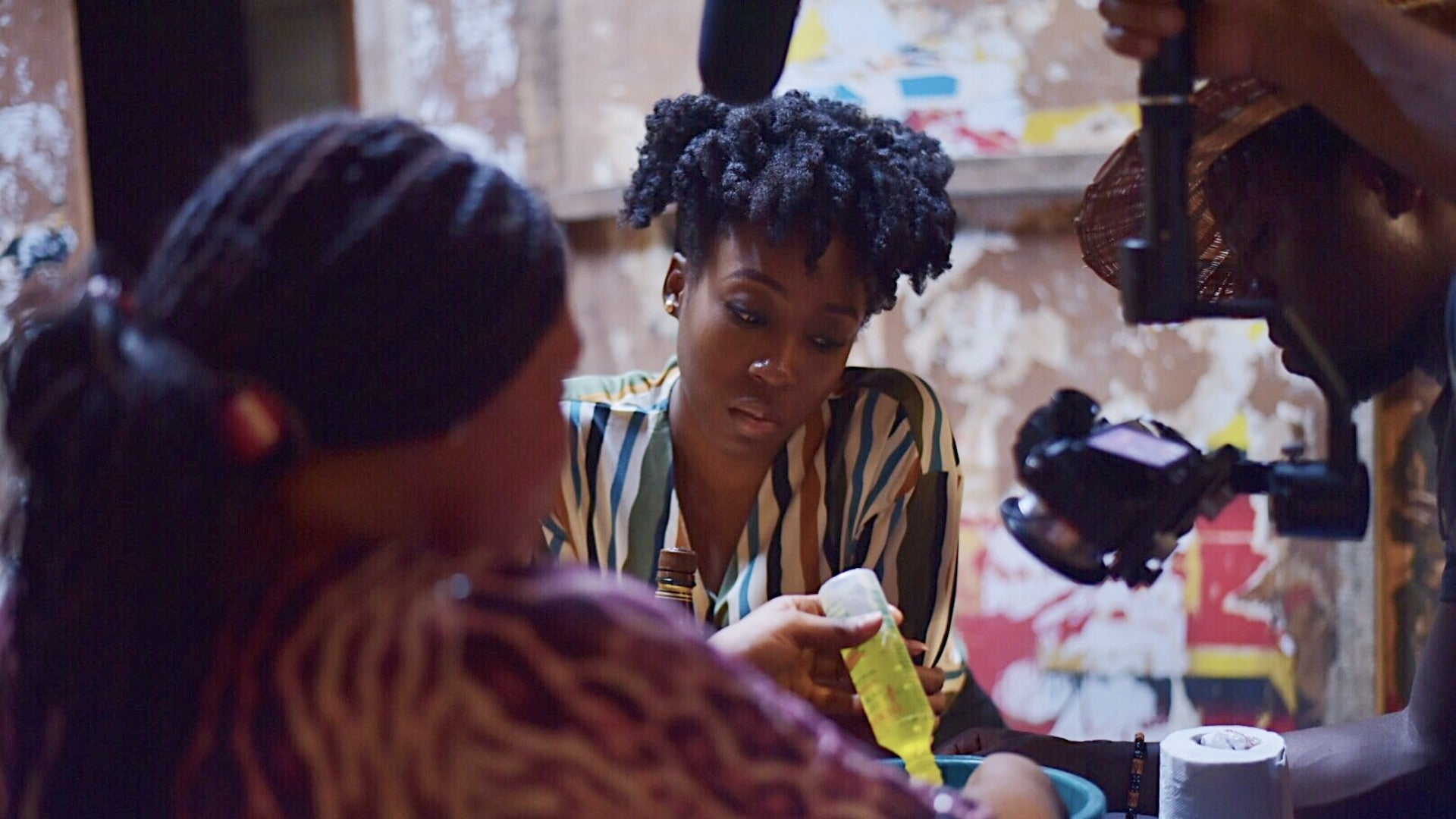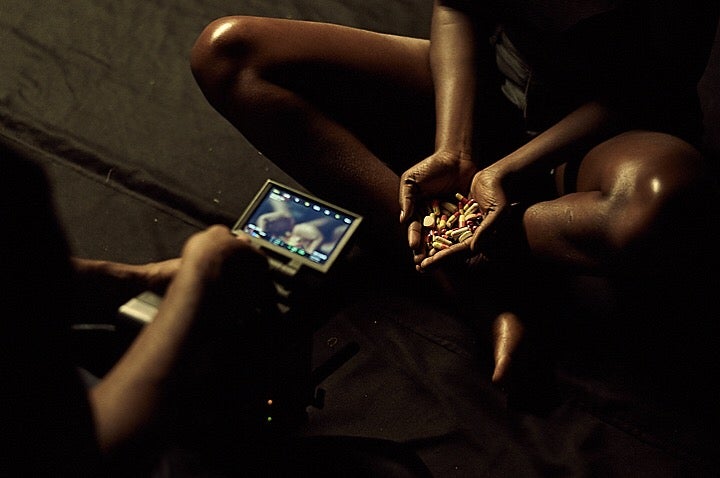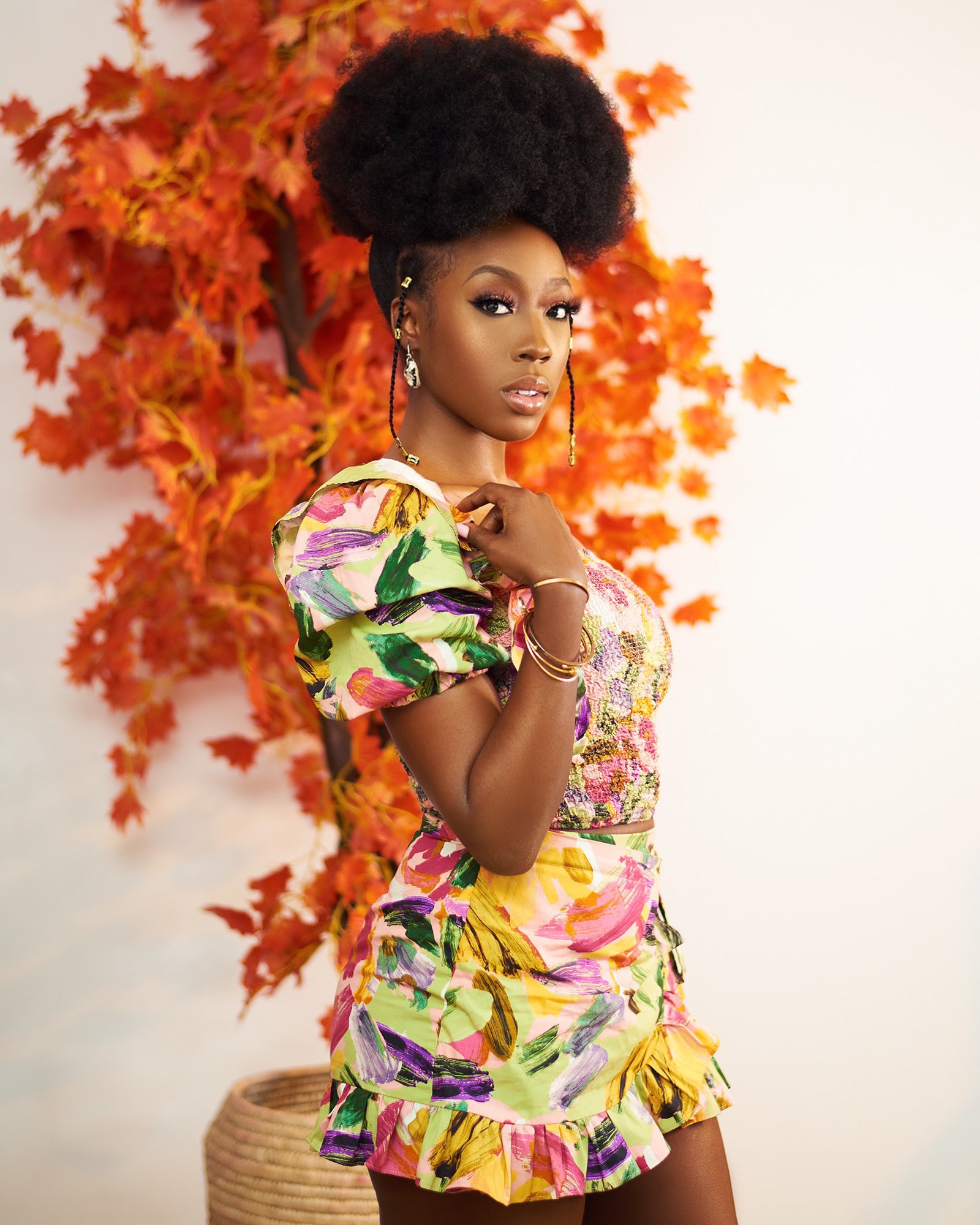
When we talk about colorism in the United States, it’s typically through a Black American gaze, which we all know is not the collective Black perspective. Directed by Daniel Etim Effiong, the documentary Skin, features Nollywood actress Beverly Naya on a journey to unpack the concept of colorism in her hometown of Lagos, Nigeria.
In the film, the London-bred actress approaches the heavy topic from a first person perspective, allowing the audience to interact with colorism through her experience. Initially opposed to being in the film herself, Naya is stripped down and vulnerable, sharing parts of her identity that she often has to tuck away when playing characters for work.
The other women that Naya interviews as she travels through Nigeria are raw, candid, and open as well. And the topic of skin bleaching becomes a prevalent thread in the story. A constant that cannot be ignored is that almost all of the women discuss skin bleaching as something that is done for the affection of men.
It was an interesting contrast from the colorism conversation we have in the Black community here in the U.S., where colorism is prevalent, but skin bleaching is mostly considered vile and met with disdain. And we often categorize colorism as a remnant of slavery, part of the European ideal of beauty placed on Black people by others.
So ESSENCE talked with Naya about the unique perspective of the film, the dangers of skin bleaching, and what she’s learned about accepting her own beauty from doing this project.
The film focuses on colorism in Nigeria specifically, but you grew up in London. Did you see a difference in forms of colorism or how it manifests itself in the UK from how it shows in Nigeria?
There’s definitely a difference. People aren’t as tolerant of colorism in the UK whereas a lot of people don’t even know what it is in Nigeria, so don’t even realize when they’re being offensive. People are becoming more vocal surrounding issues to do with colorism in the UK, in comparison to when I was young. I think a major difference between colorism in [the UK] and Nigeria is that in the UK more people grow up loving and embracing their chocolate skin and speak up against colorism. In Nigeria, a number of women do everything possible to lighten their skin instead; it really is about status and unattainable beauty standards. It’s the very reason why I started a campaign called #FiftyShadesOfBlack which aims to teach young girls about self-love and acceptance. We need more conversations like that in Nigeria.
You said that the women in Nigeria were not succumbing to skin lightening because of Eurocentric ideals of beauty, but in order to be wanted by men. Do you think men in Nigeria succumb to Eurocentric ideals of beauty?
I think it’s definitely a mixture of both for the women depending on your social class and level of exposure. I also think a lot of Nigerian men do subconsciously succumb to Eurocentric ideals of beauty and may not even be aware. As the documentary highlights, lighter skin in Nigeria is associated with wealth and affluence. When Europeans and White Americans come to Nigeria, they’re almost always in town for lucrative business deals. This automatically reinforces these notions of ‘white’ representing affluence to the average Nigerian. As a result of this, a number of Nigerian men have grown to associate having a light skinned wife or lover as an achievement or trophy, bringing them closer to seeming somewhat successful amongst their peers.

Colorism is a big deal in the U.S., but skin bleaching isn’t popular. Why do you think it’s so acceptable in Nigeria?
I feel like there’s a lot of pressure in Nigeria, especially in Lagos, for women to appear a certain way and sadly, there isn’t enough awareness on the ills of bleaching. A number of women see the results of bleaching on their friends and decide that it’s worth it without considering the long-term damage. I think a greater awareness on the risks of skin lightening products needs to happen. It’s partly why I decided to shoot Skin.
What’s the most important thing you learned from your grandmother and your mother about accepting your own beauty?
My mum and grandma both achieved great heights as dark skinned women in a society that’s constantly trying to make you something else. At no point did they succumb to victimization and at no point did they believe their complexions were a hinderance to achieving their goals. I find that incredibly inspiring. Also, I believe that I am worthy, powerful and enough because my mum has instilled these words in my mind from an early age.

Some of the people in the documentary who had bleached their skin regretted it. Did you find that most people wished they could go back or was the consensus more or less light is right with most people you talked to?
I found that the majority wished to go back to their original complexions, and it was such a shocking yet touching revelation. I honestly wasn’t expecting to hear so many of them say that.
What’s next for this documentary and how has affected your acting career in Lagos?
We’re currently planning a pan-African youth tour funded by the Ford Foundation and the goal is to screen at different secondary schools and Universities across the continent. I also have plans to do the same in the United States but we’re taking it one day at a time. This documentary has definitely made me even more selective with my career. It’s given me a clearer picture of what I truly want out of life and that’s to build a legacy known not just for my craft but for empowering and inspiring people globally.
Skin was selected to close this year’s Reel Sisters of the Diaspora Film Festival & Lecture Series in New York on October 20th. For more information or for show times visit reelsisters.com.
